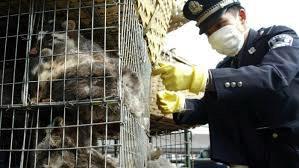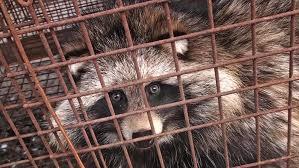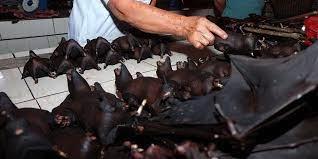 During February 2020, after the emergence of COVID in Wuhan, with a possible link to the Huanan Seafood Wholesale Market, the Government of China permanently banned consumption of meat from wild species. In May 2020, the Ministry of Agriculture and Rural Affairs allowed 16 animal species that could be ‘farmed’ to be eligible for consumption, including native deer, ostrich and emu. In December 2022, the Government amended the law that prohibits consumption, hunting, trade and transport of mammals that grow and breed naturally in the wild.
During February 2020, after the emergence of COVID in Wuhan, with a possible link to the Huanan Seafood Wholesale Market, the Government of China permanently banned consumption of meat from wild species. In May 2020, the Ministry of Agriculture and Rural Affairs allowed 16 animal species that could be ‘farmed’ to be eligible for consumption, including native deer, ostrich and emu. In December 2022, the Government amended the law that prohibits consumption, hunting, trade and transport of mammals that grow and breed naturally in the wild.
 With the recognition that wild animals sold in public wet markets in 2020 were a source of SARS, the Government temporarily banned the sale of exotic species over a decade ago. Following the disappearance of this infection among the population of China and the world, this regulation was ignored, and markets were once again stocked with exotic species, including palm civets, raccoon-dogs and pangolins.
With the recognition that wild animals sold in public wet markets in 2020 were a source of SARS, the Government temporarily banned the sale of exotic species over a decade ago. Following the disappearance of this infection among the population of China and the world, this regulation was ignored, and markets were once again stocked with exotic species, including palm civets, raccoon-dogs and pangolins.

The deficiency in the current law is that farmers may propagate mink, foxes and raccoon-dogs for fur but not for meat. This relaxation is intended to support the growing pelt industry that produces in excess of 30 million hides, annually. It is however self-evident that meat from these animals will continue to be consumed. The reality that COVID and more recently, H5N1 avian influenza, can infect mink represents a danger. The exclusion extended to ‘farming’ perpetuates the risk of mutation with the emergence of zoonotic pathogens.  Exemptions are also allowed for propagation of endangered species raised for traditional Chinese medicine. It is evident that wild caught animals and reptiles will attain clandestine legal status through introduction into farming operations.
Exemptions are also allowed for propagation of endangered species raised for traditional Chinese medicine. It is evident that wild caught animals and reptiles will attain clandestine legal status through introduction into farming operations.
The failure of China to meaningfully address the problems of emerging viral diseases and the continued tolerance and support of consuming non-conventional domestic species and wild animals, represents a danger not only to the nation but to the world.